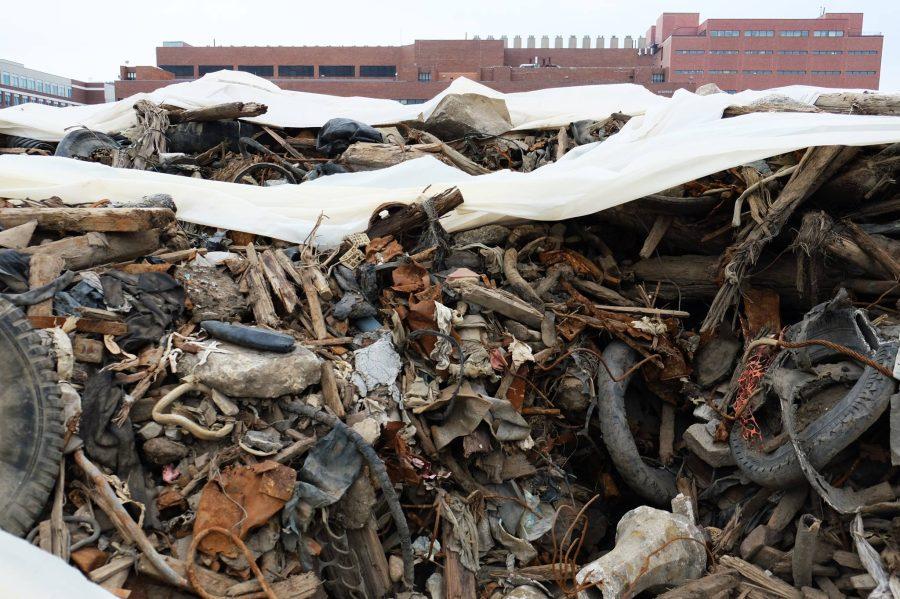In light of the detection of low-levels of asbestos in soil samples back in December, the University of Massachusetts Boston reported the problem to the Massachusetts Department of Environmental Protection (DEP).
Since the discovery, construction has stopped. Constructors are to excavate soil work on campus, especially in the area near Parking Lot D.
There have been many developments since the discovery, thanks to the DEP. This includes modifying safety measures and having additional monitoring for asbestos.
Asbestos is a mineral that can negatively affect the body and increase the chance of lung cancer to those who are exposed to it.
Asbestos is only harmful when it is airborne, but when covered by soil, it does not present any risk.
For this reason, the soil management safety plan included the continued use of extensive dust monitoring and control measures.
In February of this year, the DEP approved a phased approach after obtaining a negative result for asbestos from UMass Boston’s Department of Environmental Health & Safety (DEHS). Work was reinstated at the grounds.
Since not all test results have been gathered, workers are currently using additional protective equipment–such as coveralls and respirators–especially while air quality data is being collected and gathered.
In the upcoming weeks, air-quality assessments will be conducted with more test results expected at the end of the testing period.
If results come back negative, work will proceed in the area and workers will not need any additional use of protective equipment.
About ten workers will do the air-quality assessment and continue to wear additional protective equipment.
Workers will be also be wearing monitors daily, registering information about airborne asbestos, if present. This will help ensure the safety of site workers. Air monitoring at the site’s perimeter will also be taken and provided daily to the DEP.
Similar to soil testing, if the results from any of these monitors exceed the allowable limits, construction work will stop and additional dust suppression measures will be implemented.
If results are negative, work will continue around the premise but with the use of personal protective equipment.
UMass Boston’s DEHS is carefully monitoring the project.





















































